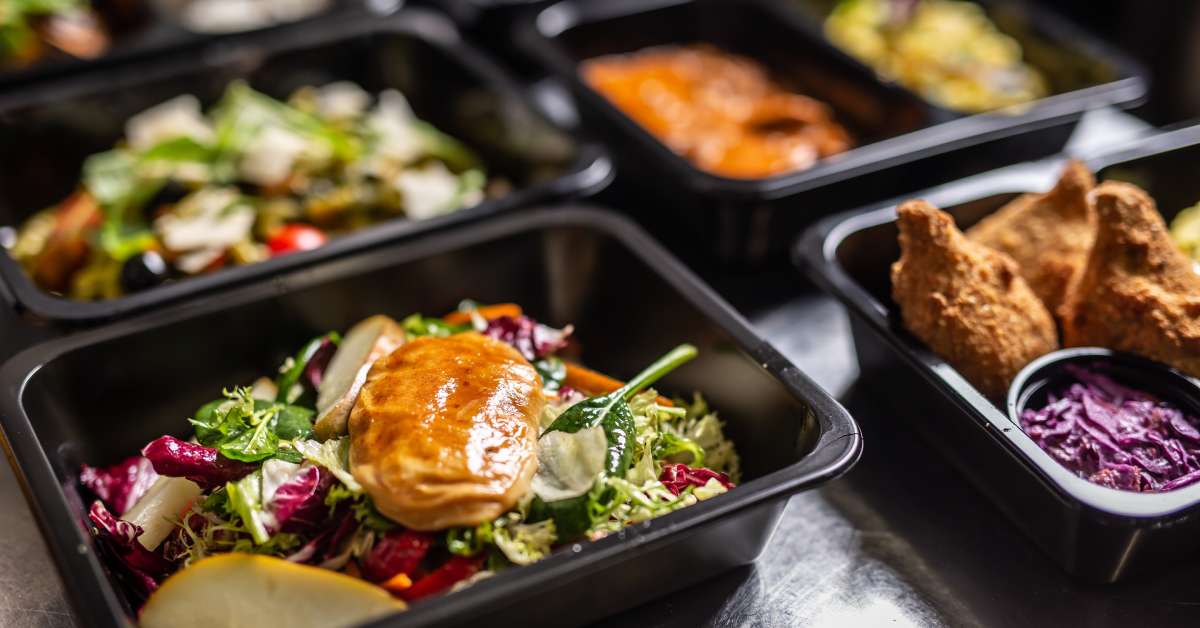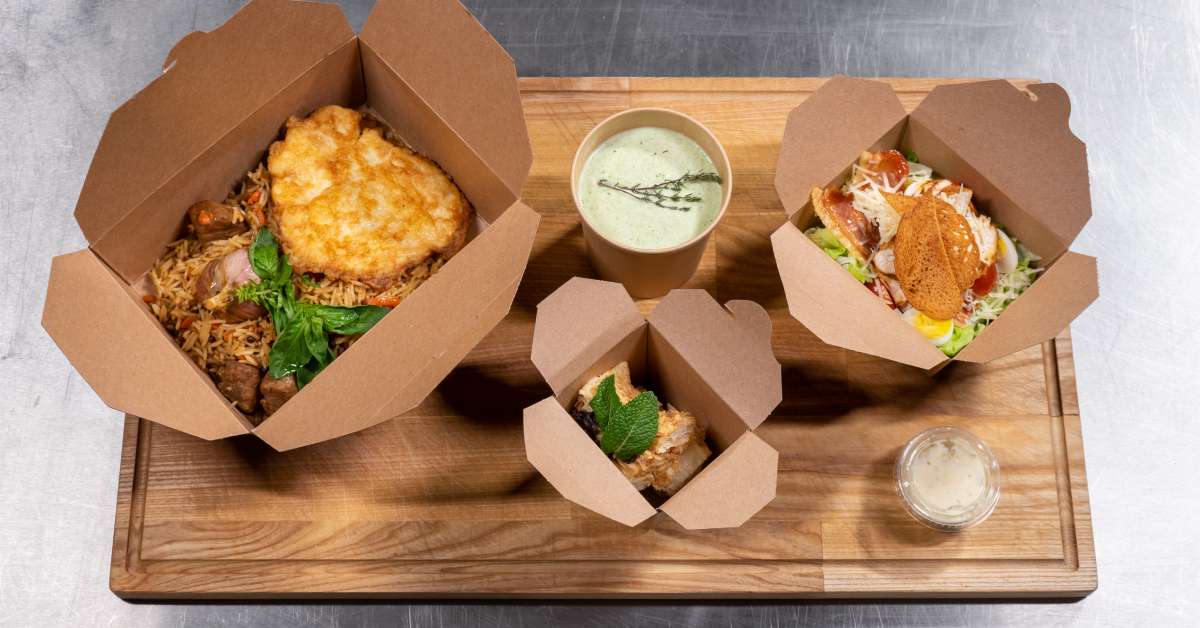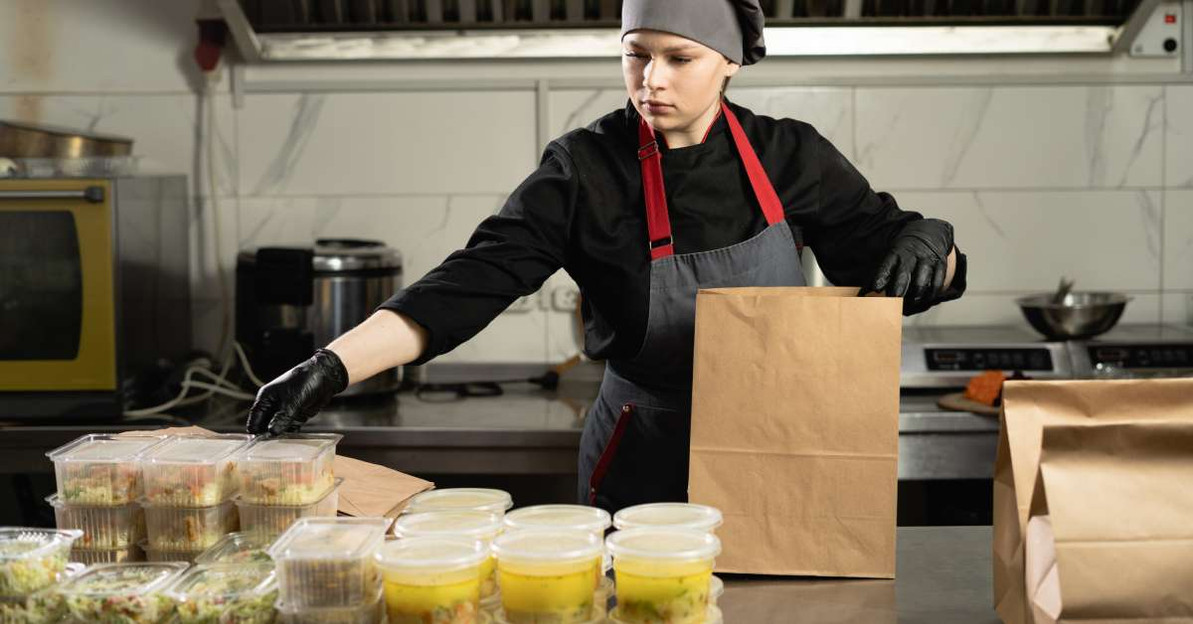What Disposable Containers Are Best for Food Transportation?
Choosing the right disposable containers for food transportation is crucial for maintaining food quality, safety, and presentation. With various options available, understanding the benefits and drawbacks of each type can help you make informed decisions for your restaurant or catering business. This comprehensive guide covers the best disposable containers for food transportation, ensuring your food arrives fresh and intact.
Plastic Containers

Plastic containers are versatile and durable, making them suitable for a wide range of food items. They are available in both rigid and flexible forms, offering different levels of protection and convenience. Many plastic containers come with secure lids that prevent spills and leaks, ensuring safe transportation. Additionally, some plastic containers are microwave-safe, allowing customers to reheat their meals easily.
Aluminum Containers
Aluminum containers are excellent for transporting hot foods, as they withstand high temperatures without melting or warping. They are often used for baked goods, casseroles, and other hot dishes. Aluminum containers are sturdy and can be reused or recycled, making them a more sustainable option than plastic and some other container materials. However, they are not suitable for microwaving and can be more expensive than other disposable options.
Paper Containers
Paper containers, including cardboard and paperboard options, are gaining popularity due to their eco-friendly nature. They are biodegradable and recyclable, making them an excellent choice for environmentally conscious businesses. Paper containers are available in various forms, such as clamshell boxes, cartons, and bags. They work well for dry or non-greasy foods but may not be the best option for items with high moisture content, as they can become soggy and lose their integrity.
Compostable Containers
Compostable containers are made from materials like cornstarch, sugarcane, and bamboo, which break down naturally without harming the environment. These containers are a sustainable alternative to traditional disposable options, offering both functionality and eco-friendliness. Compostable containers are available in various designs and sizes, suitable for different types of food. They are sturdy and provide good insulation, but they can be more expensive than other disposable options and may not always be readily available.
Clamshell Containers
Clamshell containers are versatile and convenient for food transportation. They are available in various materials, including plastic and compostable options. The hinged design provides a secure seal, preventing spills and leaks. Clamshell containers are ideal for sandwiches, salads, and other ready-to-eat meals. They are easy to stack and carry, making them a practical choice for deliveries and takeout orders.
Hinged Lid Containers
Hinged lid containers are similar to clamshell containers but often feature a more robust and secure locking mechanism. These containers are typically made from plastic and are available with multiple compartments, allowing for the separation of different food items. Hinged lid containers are ideal for meals with multiple components, such as main courses with sides. They offer excellent protection and are easy to transport, ensuring food arrives in perfect condition.
Soup and Sauce Containers
For transporting soups, sauces, and other liquids, specialized containers are necessary to prevent spills and leaks. Soup and sauce containers are usually made from plastic or paper with secure, tight-fitting lids. These containers are designed to withstand high temperatures and maintain the temperature of the contents during transportation. They are available in various sizes to accommodate single servings or larger quantities.
Salad Containers
Salad containers are designed to keep salads fresh and crisp during transportation. These containers typically feature separate compartments for dressings and toppings, preventing sogginess. Plastic is the most common material for salad containers due to its transparency, allowing customers to see the contents. Some salad containers even come with built-in utensils, adding convenience for customers on the go.
Bakery Containers
Bakery containers are essential for transporting baked goods without damaging the food’s appearance or texture. These containers are often made from plastic or cardboard and feature secure lids to protect delicate items like cakes, pastries, and cookies. Ventilation holes in bakery containers can help maintain the freshness of the contents by preventing condensation. Choosing the right bakery container ensures that your baked goods arrive in perfect condition, ready to impress.
Beverage Containers
Transporting beverages requires containers that prevent leaks and maintain the ideal temperature. Beverage containers like coffee cups, cold drink cups, and insulated carriers are designed to handle various types of drinks. They are available in materials like paper and plastic. Insulated carriers are particularly useful for transporting multiple beverages, ensuring they remain hot or cold during transit.
Eco-Friendly Options

Eco-friendly disposable containers are becoming increasingly important as businesses and consumers prioritize sustainability. Options include compostable, biodegradable, and recyclable materials. These containers offer a balance between functionality and environmental responsibility, helping reduce the ecological footprint of your business. By choosing eco-friendly options, you demonstrate a commitment to sustainability and appeal to environmentally conscious customers.
Customizable Containers
Customizable containers allow your business to reinforce its brand identity while providing practical solutions for food transportation. These containers can be printed with logos, brand colors, and other designs, making them stand out. Customizable containers are available in various materials and styles, ensuring you can find the perfect fit for your needs. Branding your containers enhances customer recognition and loyalty.
Cost-Effective Solutions
Balancing quality and cost is crucial when choosing disposable containers for food transportation. Cost-effective solutions should meet your budget constraints without compromising on performance. Consider factors such as durability, insulation, and leak resistance when evaluating different options. Buying in bulk and sourcing from reputable suppliers can help you secure high-quality containers at competitive prices.
Wholesale Disposable Restaurant Supplies
Sourcing your wholesale disposable restaurant supplies from reliable wholesalers ensures you get the best value for your money. Wholesale suppliers offer a wide range of containers in various materials, styles, and sizes, catering to diverse needs. They also provide competitive pricing, especially for bulk purchases. By partnering with dependable suppliers, you can ensure a consistent supply of high-quality containers for your food transportation needs.
Now that you know about the best disposable containers for food transportation, you can make informed decisions to ensure your food arrives fresh and intact. Partnering with the right supplier of wholesale disposable restaurant supplies provides you with the necessary resources to meet your food transportation needs efficiently and sustainably. Ensure your customers receive their meals in perfect condition by investing in the right disposable containers.
Recent Posts
-
Pros and Cons of Disposable vs. Reusable Plates
Choosing between disposable and reusable plates affects your budget, environmental impact, and daily …Oct 30th 2025 -
Dos and Don’ts When Sourcing Catering Boxes
Catering boxes play a critical role in your food service business. They protect your carefully prepa …Oct 30th 2025 -
The Ultimate Guide to Aluminum Foil Food Packaging
When your restaurant needs to select containers for take-out items or catering events, it has many o …Oct 7th 2025




